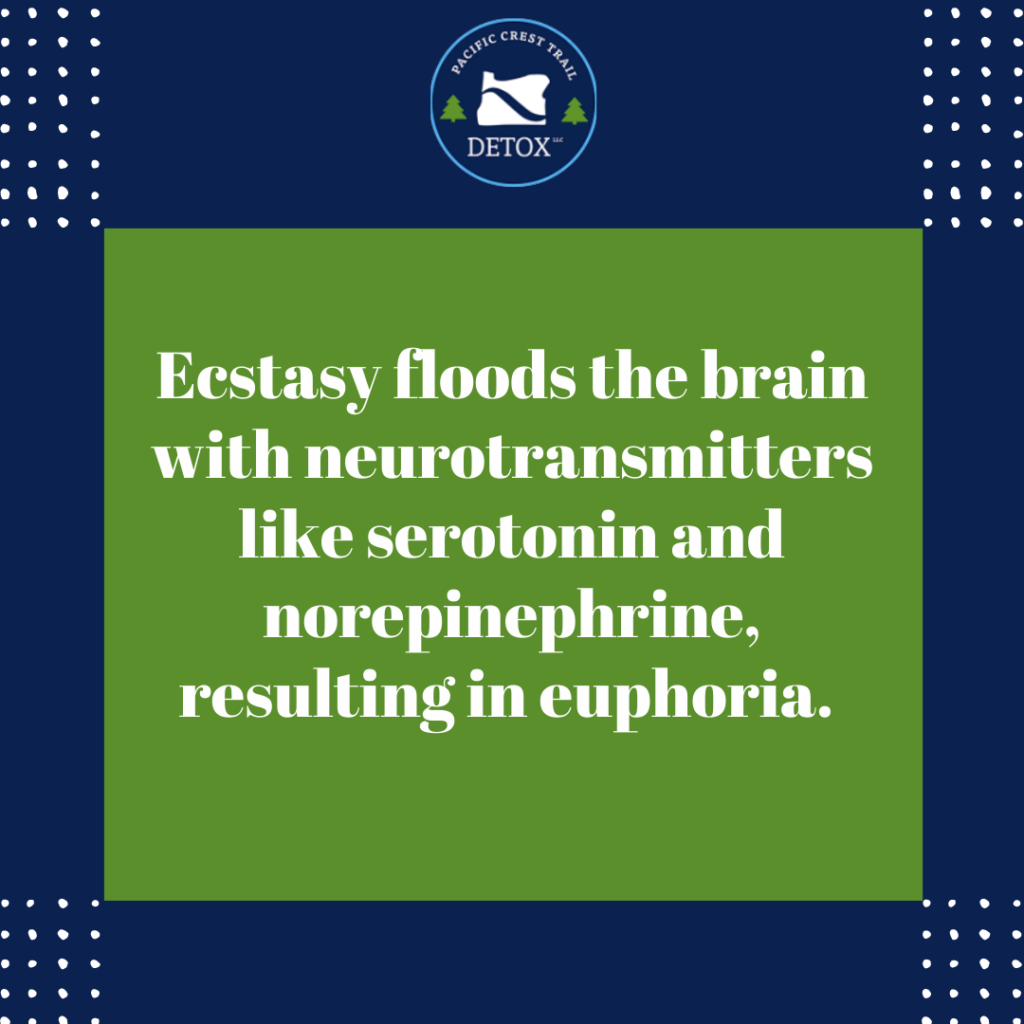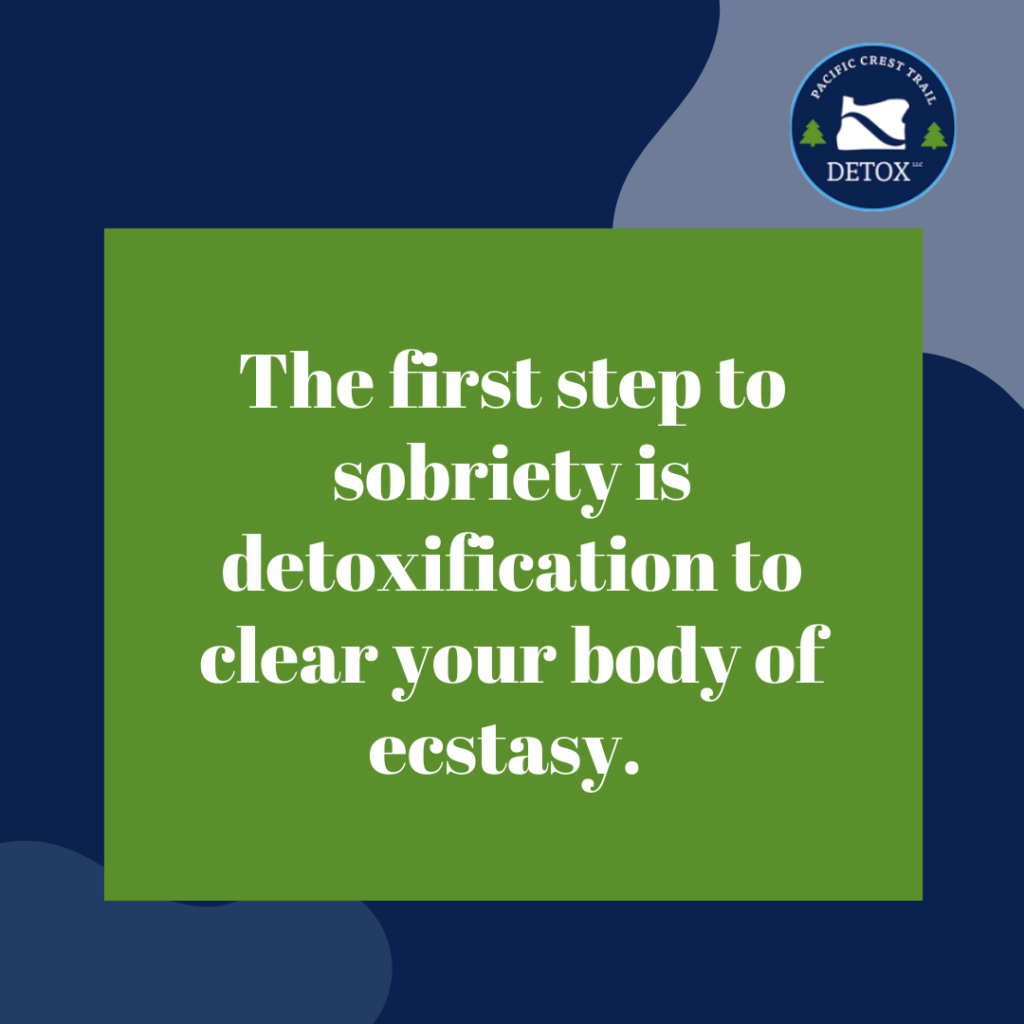You’re at a party. Then someone offers you a certain pill, saying it will boost your happiness and a guaranteed escape from worries. But beware: Falling into this trap can lead you into the clutches of ecstasy addiction.
Ecstasy, or Molly, is a well-known party drug. While it may deliver temporary pleasure, its addictive nature has serious consequences. This blog will look into the dangers of ecstasy dependency, signs of its abuse, and available treatment options. If you want to know more about this addiction, keep scrolling through.

Understanding Ecstasy or Molly
Ecstasy is an illicit recreational drug. In the scientific community, it’s called the 3,4-methylenedioxymethamphetamine or MDMA. In layman’s terms, it goes by many names, including Molly, X, E, and XTC.
German chemist Anton Kollisch discovered it in 1912, and researchers considered it a possible uterine bleeding treatment. In 1978 scientists Alexander Shulgin and David Nichols published a report comparing MDMA to marijuana minus the hallucination.
Experts began using it in psychotherapy due to its calming effects, but it was discontinued due to potential risks. Nonetheless, people have already started resorting to it for recreational purposes. And now, Molly drugs have become a cause of significant concern, particularly among young adults.
According to the 2021 National Survey on Drug Use and Health, about 2.2 million Americans aged 12 years old and above reported using ecstasy in the past year.
Is MDMA Addictive?
The US Drug Enforcement Agency classifies ecstasy as a Schedule I substance, a category for “drugs with no currently accepted medical use and a high potential for abuse.”
The addictive nature of MDMA is a subject of discussion among researchers. The National Institute on Drug Abuse states that too much ecstasy can lead to physical dependence. However, some research shows chronic use won’t cause significant withdrawal symptoms.
However, it remains true that ecstasy abuse alters how the brain works. Ecstasy floods the brain with neurotransmitters like serotonin and norepinephrine, resulting in euphoria. And these intense feelings of pleasure make users crave the drug over and over.

The Dangers of Ecstasy Abuse
If you fall into the trap of chronic ecstasy use, you may experience the following short-term side effects:
- Blurred vision
- Distorted time and perception
- False sense of energy and confidence
- Sudden rise in body temperature
- Severe sweating and dehydration
- Increased blood pressure
- Headaches and nausea
- Muscle tension
- Eye-twitching and seizures
- Depressive feelings the day after ecstasy use
Meanwhile, the long-term risks and side effects of ecstasy addiction are as follows:
- Liver, kidney, and heart failure
- Memory impairment
- Brain damage (ecstasy dependency can deplete serotonin production and block its uptake)
- Severe anxiety and depression
- Sleep issues
- Psychosis
- Nerve degeneration
- Death
These potential effects emphasize how dangerous ecstasy can be to you. But its impact goes beyond just yourself. It can take a toll on the people around you and society in general.
When you exhibit ecstasy-seeking behavior, it also affects your loved ones. They may feel helpless as they see you getting consumed by the drug you take. They will inevitably worry about your well-being and your high risk of doing unsafe activities, which may lead them to suffer from excessive stress and anxiety.
At the societal level, you can impact your community in different manners. For example, you can be involved in crimes and accidents, posing significant threats to public safety. You will also be less productive at work, imposing an economic burden that could extend well beyond your immediate employer.
When you become part of the ecstasy users statistic, you also contribute to the brunt that the healthcare system experiences. Ecstasy-related hospital visits will rise, affecting the allocation of medical resources.
Recognizing Ecstasy Addiction

How can one spot ecstasy dependency? These are the most common signs and symptoms.
Mood Swings
You may see fluctuations in your emotions and experience alternating periods of extreme sociability and depressive moods.
Overheating in Social Situations
You may sweat profusely, especially in crowded spaces (e.g., clubs, parties).
Oversleeping
When you’re not using ecstasy, you may tend to oversleep.
Changes in Social Circle
You may isolate yourself from your immediate circle and be in the company of fellow ecstasy users (and other stimulants).
Neglecting Responsibilities
As you get preoccupied with ecstasy, you may also tend to neglect your personal responsibilities at home, at work, or in school.
Secretive Behaviors
You will be engaged in secretive actions to hide your use of ecstasy. Moreover, you may be easily agitated or defensive when others ask about your whereabouts.
Financial Issues
You will constantly need funds to continue your usage of ecstasy, leading to unexplained money-related concerns.
Legal Problems
You may also be involved in legal troubles because of reckless behavior or possession of drugs.
Incapacity to Quit Ecstasy
After having known or experienced the side effects and negative implications of ecstasy use, you may still find it difficult to control your urges.
Possible Treatment Options
There are different MDMA addiction treatment options available depending on a patient’s needs. But the first step to sobriety is detoxification to clear your body of ecstasy.
In detoxification, a medical team will evaluate you to determine the level of medications you need. Using medical and psychological therapy, they will help you stabilize and manage withdrawal symptoms, if any. The final step of this process is preparing you for a treatment program.
If you’re struggling with addiction and want to separate from triggers, you’re more likely to undergo inpatient treatment. In an inpatient rehabilitation facility, you will live in a safe and supportive environment to focus on recovery.
Meanwhile, outpatient programs are there to offer flexibility. Typically, intensive outpatient treatment options are also recommended if you’ve just completed your inpatient program to help sustain sobriety.
In support of these treatment approaches, you may also find more motivation to recover by joining support groups.

Ecstasy or Molly abuse has far-reaching impacts on individuals, their immediate circles, and society. If you chronically use it, it can lead to physical and psychological changes that can compromise your relationships with others.
However, this serious concern is not without hope. And recognizing ecstasy abuse and taking immediate actions are critical steps in attaining lasting recovery. Staying informed is also essential — so the next time you’re at a party and someone offers you ecstasy, you won’t be led straight into the clutches of addiction.
Do you know someone looking for an effective drug detox in Portland Oregon? Pacific Crest Trail Detox offers an intensive outpatient program that helps people with ecstasy addiction successfully transition into a life free of drugs. Get in touch with them today.
